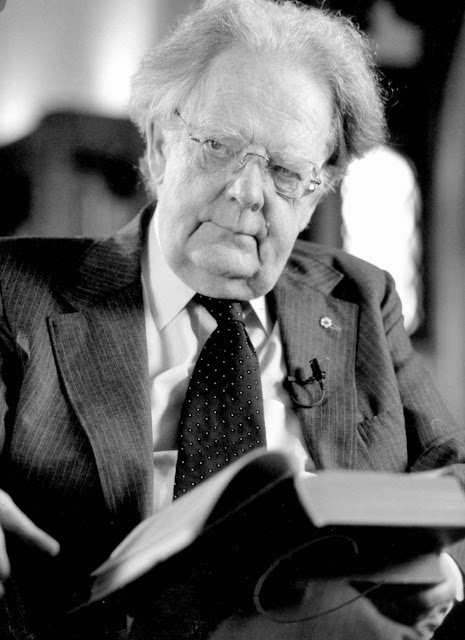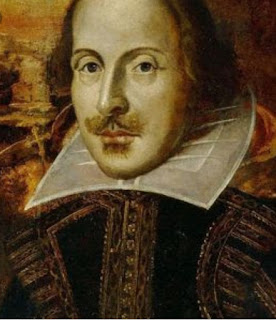Northrop Frye : The Archetypes of literature
Northrop Frye essay on the " Archetypes of literature", these essay understanding task it is given by Dr. Dilip Barad here I mention his blog link.
http://dilipbarad.blogspot.in/2014/12/northrop-frye-archetypes-of-literature.html
1) What is Archetypal criticism? What does the archetypal critic do ?
2) what is Frye trying prove by giving an analogy of physics of nature and criticism to literature ?
Frye is giving an analogy of physics of nature and criticism to literature this sentence through he trying to prove that physics is an organized body of knowledge about nature and student of it says that he is learning physics but he is learning nature. Same this method is similar for literature's student , he is learning criticism and its through criticized literary works but he cannot say he taught literature.
3) Share your views of criticism as an organised body of knowledge. Mention relation of literature with history and philosophy.
Criticism as an organised body of knowledge this statement given by Frye. Here I mention that his view two types of criticism first is meaningless and second is significant criticism , so that we can understand literature with help of significant criticism so criticism organised body of literary knowledge. Other hand he says that literature is part of history and philosophy. These two branches of knowledge provide a kind of pattern for understanding literature. Here I notice that philosophy and history are two major tools for interpretation of literature and archetypal criticism. Most of literature based on philosophy and history ,If reader aware about history and philosophy so that reader easily understand archetypal criticism.
4) Briefly explain Inductive method with illustration of Shakespeare's Hamlet's Grave Digger's scene.
According to Oxford University press Inductive definition - Inductive approach start with some examples from which a rule is inferred.
It is easy means -
Know through unknown
Conflict through Abract
Bottom - up approach
Example through rule
Specific through General
Here I mention this video for understanding both methods :
Hamlet's Grave Digger's scene is best example of inductive method. In the scene we can observe that grave digger's speech and Hamlet's speech it is metaphoric and other thing we can notice that graveyard scene it is symbol of tragic also.
5) Briefly explain Deductive method with of reference to an analogy to music, painting, rhythm and pattern. Give examples of the outcome of Deductive.
According to Oxford University press Deductive definition " A deductive approach starts with the presentation of a rule and is followed by examples in which the rule is applied".
It is easy means that
Unknown through known
Abract through conflict
Top through down
Rule through exam
General through Specific
6) Archetypal approach and apply Indian season grid in the interpretation.
According to Frye seasonal cycle different from Indian cycle. He applies this cycle
Summer - Romance
Winter- Irony and Satire
Autumn - Tragedy
Spring - Comedy
His observations round his country author but Indian author for different seasonal cycle.
According to Indian cycle summer mean tragedy
Here this poem is example of summer season
गरमी भारी
चैन न मिलता
चुभे लपट
बन तीर।
बंदर से
बोली घरवाली
चलो चलें कश्मीर।
तन से बहे पसीना खारी
क्या होगा ओ राम।
बोला गीदड़ आग लगी हैकहां करें विश्राम॥
भालूजी की गले की हड्डी
बनी रजाई खूब।
नहीं हटाई जाती तन से
गरमी लाती ऊब॥
कौआ कांव-कांव चिल्लाता
नहीं घड़े में नीर।
कंकड़ डाल-डाल के हारा
छूटा मन का धीर॥
गधेमलजी मस्त हुए हैं
रोज लगाते लोट।
कहते लोग व्यर्थ चिल्लाते
गरमी के मन खोट॥
And springs or rainy season means romance here I put on example of poem
Literature - Religious VS Science
If we try to connect these three dots i.e. (i) Northrope Frye's archetype of literature in form of narrative and significance (meaning) - the quest-myth as the basic archetype of all literatures. But people can not ready to accept it. Like in the Hindu religious gods and goddesses's myth such like unbelievable imagine if they live at present time what happened with them. For example Krishna Lila may be called romiogiry and Rama may be called as failure husband. But present time people see them, they are God and religious people can not ready to accept as they were also human being if any literary critic say about them then blind followers’s sentiment hurt. That's why rewriter of myth critics have problem to write again myth as like Amish had faced situation like that. Sometimes myth or ritual behind scientific reason also but mostly people forget it for example Holika Dahan behind scientific reason. But nobody forget Holika's myth so that type myth become archetype of literature.
Religious follower cannot think as logically because maybe they like fiction truth and don't ready to apply science truth.
God for the critic, whether he finds him in Paradise Lost or the Bible, is a character in a human story; and for the critic all epiphanies are explained, not in terms of the riddle of a possessing god or devil, but as mental phenomena closely associated in their origin with dreams."
"Religion is nothing but a narrative and God is just a character in that narrative."
http://dilipbarad.blogspot.in/2014/12/northrop-frye-archetypes-of-literature.html
1) What is Archetypal criticism? What does the archetypal critic do ?
- Archetypes criticism is term of to understanding the literature. Archetypal criticism studies structure sets and apparatuses of myths and Archetypes in literature.
- This term is archetype denoted recurrent narrative design, character,type, themes,images as well as myths, dreams and even social rituals for better understanding literature.
- Myth is not pure because it is residual in breached condition refracted through imageries and symbols the medium of representing the archetypes.
- Archetypal critic observe criticism conceptually as a science.
2) what is Frye trying prove by giving an analogy of physics of nature and criticism to literature ?
Frye is giving an analogy of physics of nature and criticism to literature this sentence through he trying to prove that physics is an organized body of knowledge about nature and student of it says that he is learning physics but he is learning nature. Same this method is similar for literature's student , he is learning criticism and its through criticized literary works but he cannot say he taught literature.
3) Share your views of criticism as an organised body of knowledge. Mention relation of literature with history and philosophy.
Criticism as an organised body of knowledge this statement given by Frye. Here I mention that his view two types of criticism first is meaningless and second is significant criticism , so that we can understand literature with help of significant criticism so criticism organised body of literary knowledge. Other hand he says that literature is part of history and philosophy. These two branches of knowledge provide a kind of pattern for understanding literature. Here I notice that philosophy and history are two major tools for interpretation of literature and archetypal criticism. Most of literature based on philosophy and history ,If reader aware about history and philosophy so that reader easily understand archetypal criticism.
4) Briefly explain Inductive method with illustration of Shakespeare's Hamlet's Grave Digger's scene.
According to Oxford University press Inductive definition - Inductive approach start with some examples from which a rule is inferred.
It is easy means -
Know through unknown
Conflict through Abract
Bottom - up approach
Example through rule
Specific through General
Here I mention this video for understanding both methods :
Hamlet's Grave Digger's scene is best example of inductive method. In the scene we can observe that grave digger's speech and Hamlet's speech it is metaphoric and other thing we can notice that graveyard scene it is symbol of tragic also.
5) Briefly explain Deductive method with of reference to an analogy to music, painting, rhythm and pattern. Give examples of the outcome of Deductive.
According to Oxford University press Deductive definition " A deductive approach starts with the presentation of a rule and is followed by examples in which the rule is applied".
It is easy means that
Unknown through known
Abract through conflict
Top through down
Rule through exam
General through Specific
6) Archetypal approach and apply Indian season grid in the interpretation.
According to Frye seasonal cycle different from Indian cycle. He applies this cycle
Summer - Romance
Winter- Irony and Satire
Autumn - Tragedy
Spring - Comedy
His observations round his country author but Indian author for different seasonal cycle.
According to Indian cycle summer mean tragedy
Here this poem is example of summer season
गरमी भारी
चैन न मिलता
चुभे लपट
बन तीर।
बंदर से
बोली घरवाली
चलो चलें कश्मीर।
तन से बहे पसीना खारी
क्या होगा ओ राम।
बोला गीदड़ आग लगी हैकहां करें विश्राम॥
भालूजी की गले की हड्डी
बनी रजाई खूब।
नहीं हटाई जाती तन से
गरमी लाती ऊब॥
कौआ कांव-कांव चिल्लाता
नहीं घड़े में नीर।
कंकड़ डाल-डाल के हारा
छूटा मन का धीर॥
गधेमलजी मस्त हुए हैं
रोज लगाते लोट।
कहते लोग व्यर्थ चिल्लाते
गरमी के मन खोट॥
And springs or rainy season means romance here I put on example of poem
Literature - Religious VS Science
If we try to connect these three dots i.e. (i) Northrope Frye's archetype of literature in form of narrative and significance (meaning) - the quest-myth as the basic archetype of all literatures. But people can not ready to accept it. Like in the Hindu religious gods and goddesses's myth such like unbelievable imagine if they live at present time what happened with them. For example Krishna Lila may be called romiogiry and Rama may be called as failure husband. But present time people see them, they are God and religious people can not ready to accept as they were also human being if any literary critic say about them then blind followers’s sentiment hurt. That's why rewriter of myth critics have problem to write again myth as like Amish had faced situation like that. Sometimes myth or ritual behind scientific reason also but mostly people forget it for example Holika Dahan behind scientific reason. But nobody forget Holika's myth so that type myth become archetype of literature.
Religious follower cannot think as logically because maybe they like fiction truth and don't ready to apply science truth.
God for the critic, whether he finds him in Paradise Lost or the Bible, is a character in a human story; and for the critic all epiphanies are explained, not in terms of the riddle of a possessing god or devil, but as mental phenomena closely associated in their origin with dreams."
"Religion is nothing but a narrative and God is just a character in that narrative."






Comments
Post a Comment